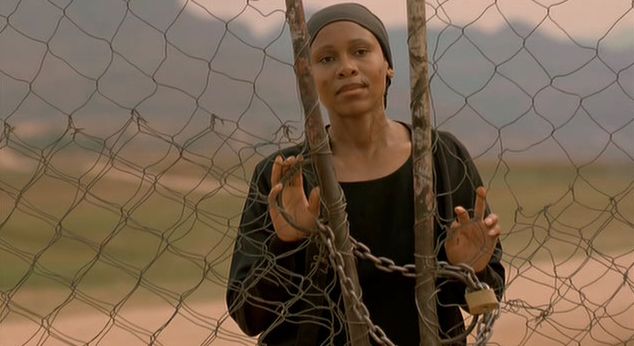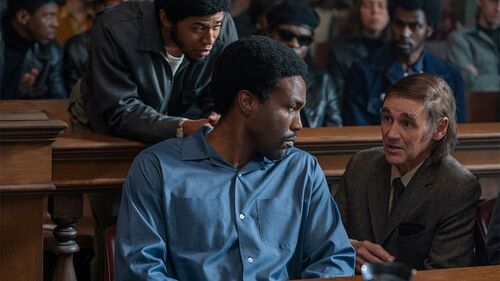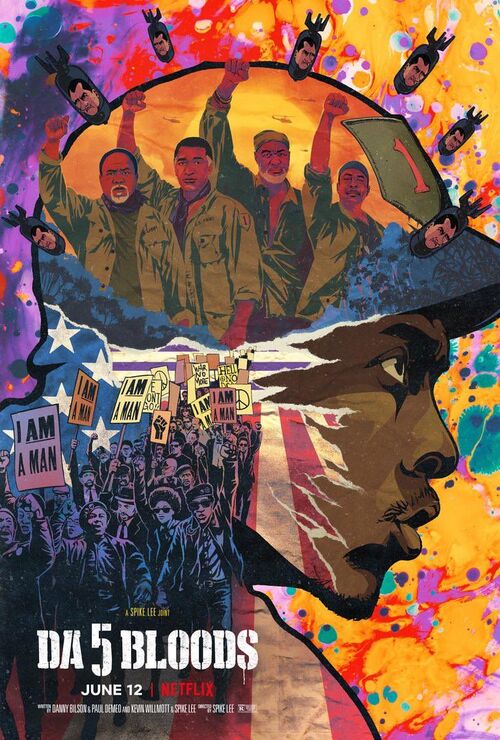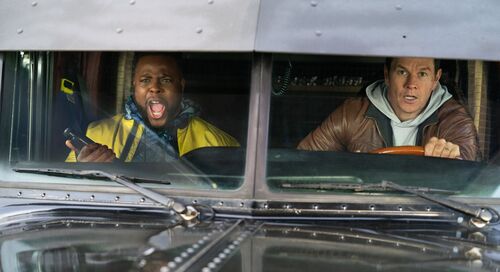
'Yesterday' review
 Every now and then, I come across a film operating outside the conventional constraints of the horror genre that leaves me in a state of distress. The anxiety served up in Denis Villeneuve's 2013 film 'Prisoners' readily comes to mind. It made the idea of caring of caring for one's kids a terrifying prospect evoking this strong sense of paranoia. The 2004 Oscar-nominated South African film ‘Yesterday’ left me in a similar space, with respect to the hellish confluence of poverty and travails for medical care.
Every now and then, I come across a film operating outside the conventional constraints of the horror genre that leaves me in a state of distress. The anxiety served up in Denis Villeneuve's 2013 film 'Prisoners' readily comes to mind. It made the idea of caring of caring for one's kids a terrifying prospect evoking this strong sense of paranoia. The 2004 Oscar-nominated South African film ‘Yesterday’ left me in a similar space, with respect to the hellish confluence of poverty and travails for medical care.
'Yesterday' opens with a wide shot of the vast Zululand landscape with this hypnotic twanging score. Our eponymous protagonist and her daughter, Beauty, look like trailing Israelites on the trek to the promised land. Only, the promised land is a small clinic with a simple check-up as the reward instead of milk and honey. Yesterday has these worsening coughing fits and dizzy spells. It will take a weeks before she’ll learn what’s wrong.
Her first two trips to the clinic end in disappointment. She is met by an impossible queue and the subsequent announcement by a security guard that the doctor will only be able to see a mere fraction of the hundreds. It becomes third time lucky for Yesterday, well, till she learns she has HIV.
Sub-Saharan Africa has borne the brunt of the HIV/AIDS epidemic. Things are significantly better than a decade or so ago but at its peak, Africa was home to over 70 percent of the HIV/AIDS cases worldwide. In 'Yesterday', writer-director Darrell Roodt presents HIV/AIDS as an unspoken bogeyman. The one that rips families apart and turns the world on its head, such that society comes at infected much like zombies attack humans. It takes about an hour before HIV/AIDS is explicitly mentioned but by then, the virus has a firm grip on the story.
Yesterday contracted HIV from her husband, who spends months away from their poor Zulu village of Rooihoek at his mining job in the city. After hearing the news, she makes her way to the city to tell him and he meets her with violent denial. Fast forward a few months and Yesterday’s husband makes his way home: scrawny, hobbling, lesion-faced, pitiful and full of remorse. The unspoken bogeyman was almost done with him.
Yesterday is played by Leleti Khumalo, the fiery symbol of Soweto resistance at the centre of Roodt’s iconic ‘Sarafina!’. She exudes so much energy as the titular Sarafina and wields the most effervescent of smiles in the 1992 film. There are some parallels between the two performances, albeit driven home by contrasting levels of physicality. Khumalo is operating in more sensitive territory in 'Yesterday'. Though a dark cloud shrouds our protagonist's existence, she is determined to fight back. What she loses in physical vigour, she makes up for in sheer will to stay alive, at least for her daughter's sake although there is a sense of inevitability that accompanies her travails.
At its worst, 'Yesterday' lags a little and basically sets aside time for a PSA on HIV/AIDS – noble but tedious. But for the most part, Roodt elevates his story to transcend the compelling surface narrative. 'Yesterday' is in a number of ways a critique of South Africa’s treatment of the people on the fringes of society, though Roodt doesn’t slap us in the face with the layers of neglect and destitution of this Zulu village. These points are like side quests, like when Yesterday and her daughter run into a couple of teachers who have been searching for a school to teach in for two years.
“We’ve waited a long time, we been here for so long,” a woman tells Yesterday after disappointment at the clinic early in the film. She not only speaks of the present but of a history of neglect that extends from the apartheid days into the era liberation. Indeed, that unnamed woman speaks for disenfranchised and neglected people everywhere.
There is also the detail that makes Rooihoek feel like rural South Africa’s version of Themyscira, sometimes stunning in the conspicuous absence of men. All the men seem to have been forced to the cities in search of better jobs and the women are left to keep the homes and till the lands. It’s a woman’s world we spend time in basically: women farmers, women doctors, women witch doctors, women teachers, women dishing out pain, women exuding compassion, women taking control of their destinies.
Yesterday has to take healthcare into her own hands, fashioning out solutions and deriving dignity from literal scraps and rubbish. In truth, there were times I didn’t know whether to feel inspired or depressed. The conflicted feelings mirrored the atmosphere of the film, which is grounded in a sense of hope and warmth despite how lonely and bleak the film sometimes. Roodt's carefully composed closing is absolutely terrific in its ambiguity, perfectly captured in Khumalo’s wide smile radiating so much joy but complemented with desperately sad eyes.
The bleakness in 'Yesterday' is marked by the meaning of our protagonist's name. She explains that she was so named because her father basically believed that life only got worse. The past, yesterday, was always better.
That’s not to say Roodt leans towards despair. He is, on a basic level, making us aware of a struggle that encapsulates the existence of people not necessarily in a remote village in South Africa but people forced into the fringes of the mind of societies worldwide.
-


